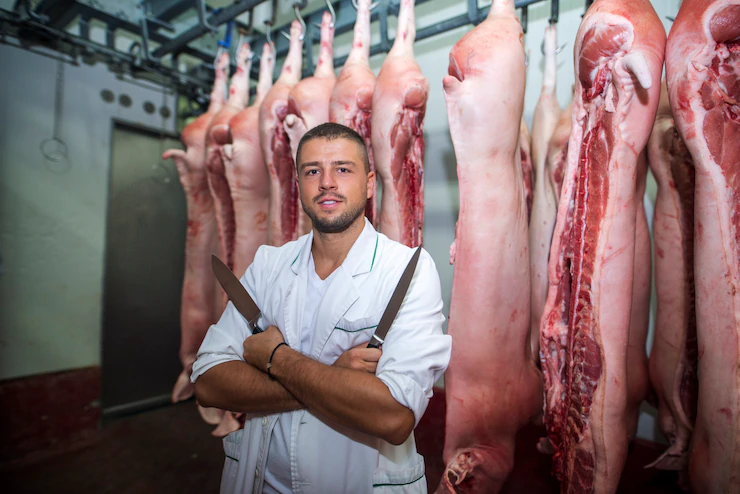Starting an abattoir business in South Africa requires careful planning and consideration of various factors. Here are 10 things you should consider:
- Legal and Regulatory Requirements: Familiarize yourself with the legal and regulatory framework governing abattoir operations in South Africa. Obtain all necessary licenses, permits, and certifications to ensure compliance with health, safety, and environmental regulations.
- Market Analysis: Conduct a thorough market analysis to assess the demand for meat products in your target area. Identify potential customers, competitors, and market trends to determine the viability of your abattoir business.
- Location: Choose a suitable location for your abattoir that is accessible to livestock suppliers and has proper infrastructure for transportation, water supply, and waste management. Consider proximity to target markets and availability of skilled labor.
- Facility and Equipment: Plan the layout and design of your abattoir facility, ensuring it meets hygiene standards and provides a safe working environment. Invest in appropriate equipment for livestock handling, slaughtering, meat processing, and packaging.
- Livestock Supply: Establish a reliable and sustainable source of livestock supply. Build relationships with local farmers, livestock auctions, or suppliers to ensure a consistent supply of healthy animals for slaughter.
- Staffing and Skills: Hire skilled and knowledgeable staff who have experience in abattoir operations. Provide training on food safety, animal welfare, and proper handling and slaughtering techniques to ensure compliance with industry standards.
- Quality Control and Food Safety: Implement strict quality control measures to maintain hygiene, food safety, and traceability throughout the slaughtering and processing operations. Adhere to South Africa’s meat inspection standards to ensure the safety of the meat products.
- Waste Management: Develop an effective waste management plan to handle and dispose of animal by-products, wastewater, and solid waste generated during the abattoir operations. Comply with environmental regulations regarding waste treatment and disposal.
- Marketing and Distribution: Develop a marketing strategy to promote your abattoir business and build relationships with meat wholesalers, retailers, restaurants, and other potential customers. Consider distribution channels and logistics for delivering your meat products to the market.
- Financial Planning: Conduct a comprehensive financial analysis, including startup costs, operational expenses, and revenue projections. Secure adequate funding through loans, investors, or personal investment to cover the initial investment and sustain the business until profitability is achieved.
Remember, it is essential to consult with experts in the field, such as industry professionals, business advisors, or agricultural organizations, to gather more specific and up-to-date information on starting an abattoir business in South Africa.
Join 'Farmers Mag' WhatsApp Channel
Get the latest Farming news and tips delivered straight to your WhatsApp
CLICK HERE TO JOIN






